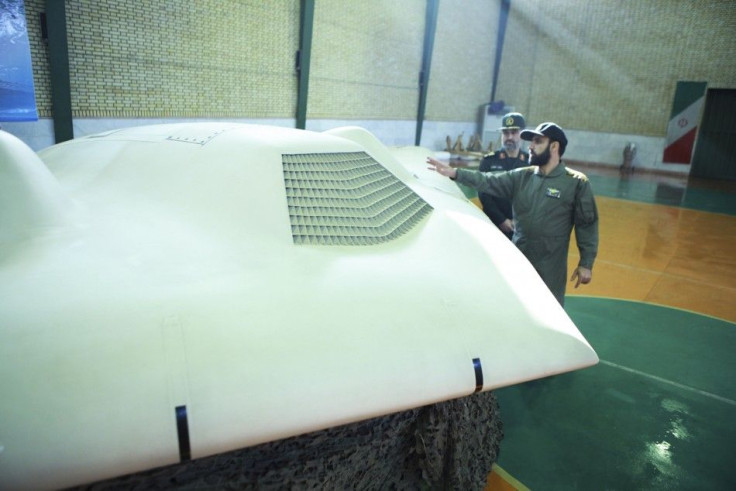Is the Iran Drone a Fake? U.S.-Iran .Propaganda War Begins

Could the alleged U.S. spy drone in the hands of Iran become the symbol of the growing military tension between the two nations?
With the amount of unsubstantiated propaganda being flung from both sides, the drone has already become one of the many instances of name-calling and finger-pointing that has gone on between Iran and the United States.
Earlier this month, Iran claimed that it had brought down an unmanned RQ-170 Sentinel drone, an American-made spy plane, over its airspace, which would be in direct violation of international law. The United States has denied that there were any missions into Iranian territory, but noted that a drone had been lost in Afghanistan, some 140 miles from where the Iranian drone is said to have landed.
With Iran's state media machine in full gear, the drone has been turned into a political tool for the regime at a time when the world has become increasingly wary of the Islamic republic over concerns that the country is building nuclear weapons.
If the drone truly belongs to the military, it puts the United States in a difficult position for a number of reasons. First, it gives Iran access to top secret technology, which it can potentially use to build its own sophisticated spy planes. Additionally, Iran or other states would be able to reverse-engineer solutions to the drone's radar-deflecting paint, minimizing its effectiveness in missions in Afghanistan, Pakistan and elsewhere.
When SEAL Team 6 crash landed inside Osama bin Laden's Abbottabad compound, a soldier with a hammer smashed the instrument panel, the radio, and the other classified fixtures inside the cockpit of the downed helicopter before blowing up the aircraft with C-4 explosives and thermite grenades, according to The New Yorker account of the raid. All this was done to destroy valuable military secrets.
The other worry about the technology is that Iran could sell information to China or North Korea, both on tense terms with the U.S., although one more so than the other. Notably, they are also both nuclear states.
The second concern is that it confirms that the United States is making confidential spy missions in Iran. These extra-judicial surveillance missions not only show the U.S. is nervous about Iran's nuclear program, but also could be the first step in a cold war-style escalation of rhetoric and action.
Real or Fake?
A retired Pentagon official told USA Today that the drone is a fake. Looking at Iranian television footage, the official, who remained anonymous, said that the drone was the wrong color and noted that the weld-joins on the wings did not match the RQ-170's stealth design.
The official also questioned why the plane's landing gear had been covered up by banners -- banners that read We’ll trample America underfoot” and “The U.S. cannot do a damn thing.”
However, Iran remains adamant that the drone is American, and added that sophisticated electronics detected the stealth aircraft and grounded it over Kashmar.
It fell into the trap of (the Guards) electronic warfare unit who then managed to land it with minimum damage, Gen. Ami Ali Hajizadeh of the Revolutionary Guards told state television.
“They wanted to spy on Iran, but it has turned against them,” said a news presenter in the same telecast. “Iran’s wisdom is keeping the Americans awake at night.”
The United States has asked for the drone back, although it has little hope of the request being fulfilled.
Our request for return of the drone is an appropriate request, said U.S. Secretary of Defense Leon Panetta. I don't expect that will happen, but I think it's important to make that request.
As expected, Iran has so far refused to comply.
No one returns the symbol of aggression to the party that sought secret and vital intelligence related to the national security of a country, Armed Forces deputy commander Hossein Salami said on state television.
The U.S. spy drone is the Islamic Republic of Iran's possession, and our country will decide what to do in this regard, Iranian Defense Minister Ahmad Vahidi was quoted as saying by the semi-official Iranian Students News Agency.
© Copyright IBTimes 2025. All rights reserved.





















